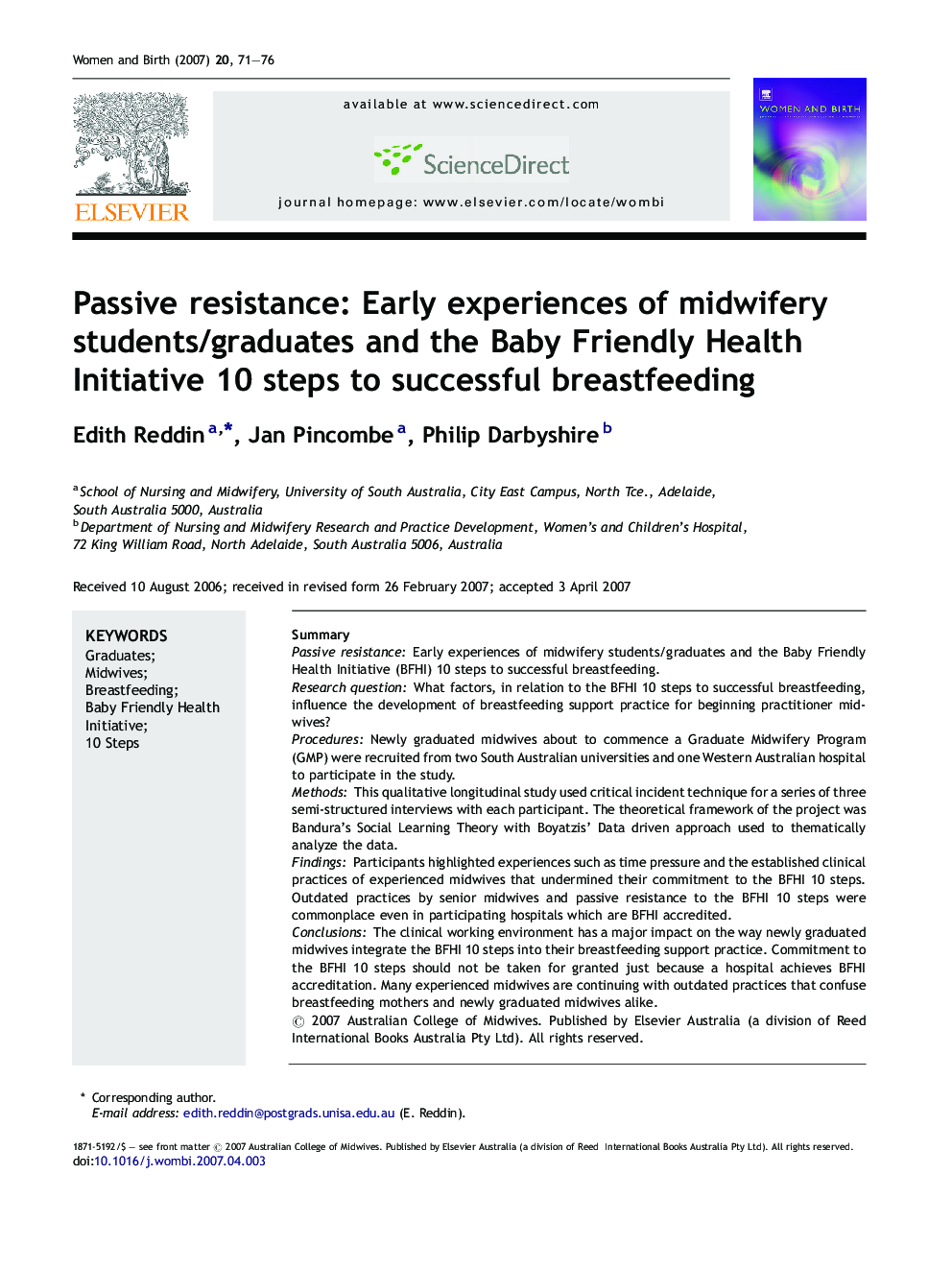| کد مقاله | کد نشریه | سال انتشار | مقاله انگلیسی | نسخه تمام متن |
|---|---|---|---|---|
| 2637720 | 1137470 | 2007 | 6 صفحه PDF | دانلود رایگان |

SummaryPassive resistanceEarly experiences of midwifery students/graduates and the Baby Friendly Health Initiative (BFHI) 10 steps to successful breastfeeding.Research questionWhat factors, in relation to the BFHI 10 steps to successful breastfeeding, influence the development of breastfeeding support practice for beginning practitioner midwives?ProceduresNewly graduated midwives about to commence a Graduate Midwifery Program (GMP) were recruited from two South Australian universities and one Western Australian hospital to participate in the study.MethodsThis qualitative longitudinal study used critical incident technique for a series of three semi-structured interviews with each participant. The theoretical framework of the project was Bandura's Social Learning Theory with Boyatzis’ Data driven approach used to thematically analyze the data.FindingsParticipants highlighted experiences such as time pressure and the established clinical practices of experienced midwives that undermined their commitment to the BFHI 10 steps. Outdated practices by senior midwives and passive resistance to the BFHI 10 steps were commonplace even in participating hospitals which are BFHI accredited.ConclusionsThe clinical working environment has a major impact on the way newly graduated midwives integrate the BFHI 10 steps into their breastfeeding support practice. Commitment to the BFHI 10 steps should not be taken for granted just because a hospital achieves BFHI accreditation. Many experienced midwives are continuing with outdated practices that confuse breastfeeding mothers and newly graduated midwives alike.
Journal: Women and Birth - Volume 20, Issue 2, June 2007, Pages 71–76